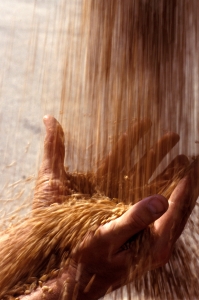
Genome analysis for enhanced plant breeding
| With climatic pressure everincreasing and arable land becoming a rare commodity, agriculture is faced with the challenge of sustainably feeding 9 billion people in 2050. One way of facing up to this challenge is through the creation of new plant varieties that are both more productive and environmentally friendly. Plant breeding requires the identification of interesting characteristics (high yields, disease resistant, drought resistant) as well as the identification of genes and molecular mechanisms that govern them. These processes require a broad range of disciplines including phenotyping, genetics, molecular biology and genomic resources management. With this multidisciplinary aim in mind, the CNRGV provides genomic resources and expertise, through varied dimensional projects (from the identification of one gene to sequencing of a whole genome), to public laboratories and private companies. Such projects could be based on already existing resources or might include the creation of new libraries. |
|
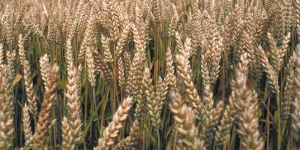
Breedwheat : Developing new wheat varieties for sustainable agriculture
Developing new wheat varieties for sustainable agriculture.
Read more

SUNRISE : SUNflower Resources to Improve yield Stability in a changing Environment
Project funded in the frame of "Investments for the future"
Read more
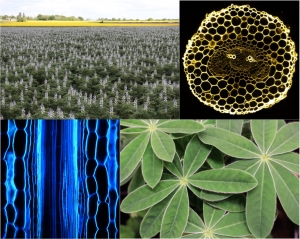
ERC LUPIN ROOTS : Unravelling cluster root development in white lupin
Plants exhibit a high level of developmental plasticity that is controlled by a complex combination of perception, integration and response. In opposition to animals, where developmental patterns are highly conserved, plant organs are produced as a response to environmental stimuli. Understanding the molecular mechanisms involved in how plants perceive and respond to these stimuli is of key importance and may lead to future application in the agronomic field. One of the most striking developmental adaptations are cluster roots from White Lupin (Lupinus albus)...
Read more
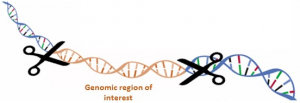
CATCH My Interest : capture of large genomic regions of interest
The CATCHMI project aims at developing a new approach to capture specific genomic regions of interest.
Read more
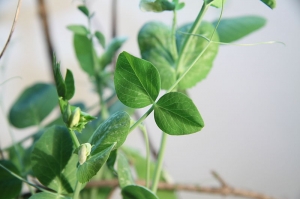
FINAPEA : Fine mapping and candidate genes at a major resistance QTL to Aphanomyces euteiches in pea
FINAPEA : The project will be associated to the federative PeaMUST national Investments for the Future Consortium.
Read more
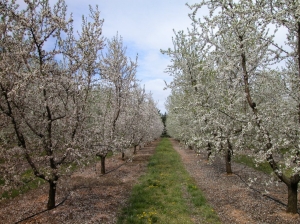
Pyramiding strategy for durable resistance to root-knot nematodes in Prunus Rootstocks
Root-knot nematodes (RKN) (Meloidogyne spp.) are extremely polyphagous pests with a high economic impact at the global scale. In stone fruit trees, three major dominant resistance (R) genes, Ma (plum),RMia (peach) and RMja (almond), have been identified and mapped in this objective. Pyramiding all three R genes opens the way to breeding rootstocks protected by at least two of them for a durable resistance...
Read more
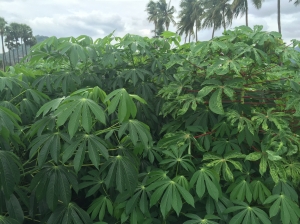
Identifying sequences associated with virus tolerance in cassava
Geminiviruses represent an important threat to crop production and food security as they are the causal agents of viral diseases in tropical and temperate staple crops. Understanding natural host resistance opens new perspectives to reduce the negative impact of viral diseases on crop production...
Read more

Controling Recombination rate for pOlyploid Crop improvement (CROC)
Controling Recombination rate for pOlyploid Crop improvement (CROC)
Read more

AMAIZING
AMAIZING aims at the development of innovative breakthrough in breeding methods and agricultural practices for the production of high yielding crop varieties with improved environmental values. It relies on a large partnership between the key players of maize economy in France and in particular a strong private partnership unique to date in the history of maize research in France.
Read more
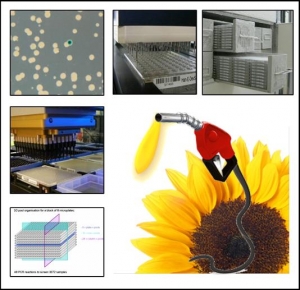
SUNYFUEL : Improving sunflower yield and quality for biofuel production by genomics and genetics
Improving sunflower yield and quality for biofuel production by genomics and genetics .
Read more
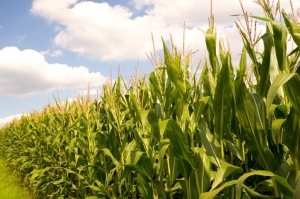
ZeaWall : Towards the identification of genetic determinisms involved in lignified secondary cell wall degradability through the elucidation of QTLs
ZeaWall : Towards the identification of genetic determinisms involved in lignified secondary cell wall degradability through the elucidation of QTLs
Read more
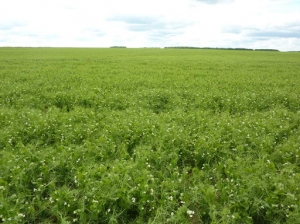
Pea MUlti-STress adaptation and biological regulations for yield improvement and stability
Project funded in the frame of "Investments for the future"
Read more
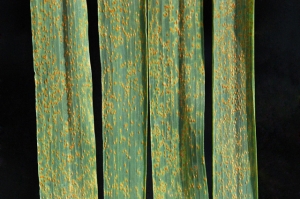
Identification of the genomic region responsible for the resistance to the leaf rust in the weat variety Sinvalocho MA using non gridded BAC library.
Identification of the genomic region responsible for the resistance to the leaf rust in the weat variety Sinvalocho MA using non gridded BAC library.
Read more
Positional cloning of the SrWLR locus involved in the wheat stem rust resistance
The project is developed in collaboration with the laboratory of Dr Maricellis Acevedo (North Dakota State University) as part of Jason Zurn PhD thesis.
The project's objective is to characterize the SrWLR locus, responsible for stem rust resistance in wheat.
Read more
Functional genomics of the wheat-Fusarium interaction
Functional genomics of the wheat-Fusarium interaction
Read more
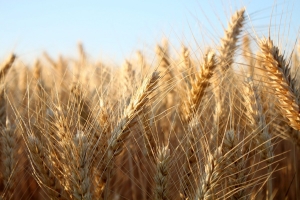
Towards the positional cloning of 4HL stripe rust resistance quantitative trait loci in barley. Development of a BAC library
Collaboration with the University of Lima in Peru in order to construct a Barley BAC library.
Read more

Ger4 locus characterization in 8 barley varieties and it relation with powdery mildew resistance
Ger4 locus characterization in 8 barley varieties and it relation with powdery mildew resistance
Read more

Genetic Study of Barley Germplasm and Analysis of Segregating Generations of Cultivated and Wild Barley Crosses Under Drought Stress Conditions
Genetic Study of Barley Germplasm and Analysis of Segregating Generations of Cultivated and Wild Barley Crosses Under Drought Stress Conditions
Read more
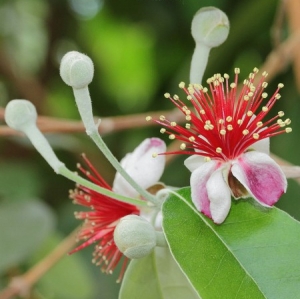
Terra incognita : exploring Acca sellowiana genome
Acca sellowiana (Myrtaceae), known as feijoa or pineapple guava, is a diploid, (2n=2x=22) outcrossing fruit tree species native to Uruguay and Brazil. The species stands out for its highly aromatic fruits, with nutraceutical and therapeutic value. Despite a short history of (documented) domestication/breeding, feijoa is cultivated as a promising crop in several countries worldwide.
Read more
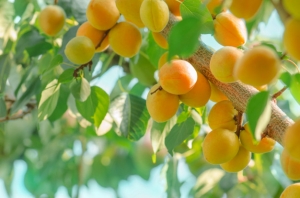
Comparative genomics of Armeniaca (apricot) species
Sustainable fruit production relies on the introduction of genetic resistance to diseases and pests from wild populations into the cultivated germplasm....
Read more
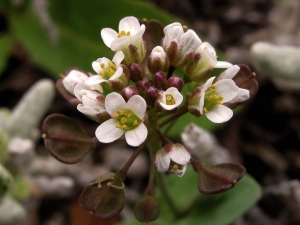
Genomic analyses reveal of self-incompatibility in Capsella
This project aims at characterizing the genetic basis and timing of loss of SI in the self-fertilizing crucifer species Capsella orientalis using complementary approaches (long read sequencing of multiple full-length S-haplotypes, genetic mapping, population genomics and expression analyses).
Read more
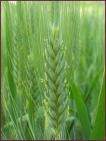
Analysis of WRKY and ERF genes potentially Involved in salt stress responses in Triticum turgidum L. ssp. durum.
WRKY transcription factors are involved in multiple aspects of plant growth, development and responses to biotic stresses. Although they have been found to play roles in regulating plant responses to environmental stresses, these roles still need to be explored, especially those pertaining to crops. Durum wheat is the second most widely produced cereal in the world. Complex, large and unsequenced genomes, in addition to a lack of genomic resources, hinder the molecular characterization of tolerance mechanisms. This project aims at characterizing TdWRKY genes from durum wheat (Triticum turgidum L. ssp. durum).
Read more
GenoPheno: Genomics of phenology in the pine processionary moth
This project aims at developing population genomics approaches to identify loci potentially linked to the evolution of phenology in the pine processionary moth Thaumetopoea pityocampa...
Read more
EXOTIC: EXperimentally Orientated genomics to Tackle Insects’ adaptive Challenges during bioinvasions: the ladybird Harmonia axyridis as a model species
The objective of this project is to decipher the adaptive changes observed at various traits that occurred during the invasion of the harlequin ladybird (Harmonia axyridis), through the close integration of population genomics with experimental studies...
Read more
Identification and sequencing of the asparagine synthetase genes in Durum Wheat
Identification and sequencing of the asparagine synthetase genes in Durum Wheat
Read more
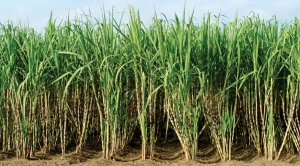
Identification of allelic copies of loci that control traits of economic importance and analysis of its variation between hom(e)ologous chromosomes in sugarcane (Saccharum spp.)
Identification of allelic copies of loci that control traits of economic importance and analysis of its variation between hom(e)ologous chromosomes in sugarcane (Saccharum spp.)
Read more
Towards the understanding of the mechanisms involved in frost tolerance in pea.
Towards the understanding of the mechanisms involved in frost tolerance in pea.
Read more
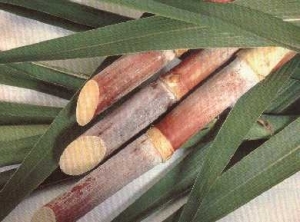
Screening the R570 sugarcane BAC library to identify BAC clones that underlie QTL of agronomic importance
In the last five years a consortium of scientists from a number of countries including Australia have grouped together to form the Sugarcane Genome Sequencing Initiative (SUGESI). The goal of this consortium is to generate a combined monoploid genom e sequence of sugarcane.
Read more
Isolation of SH3 coffee tree gene(s) conferring the resistance to leaf rust using a non gridded BAC library strategy.
Isolation of SH3 coffee tree gene(s) conferring the resistance to leaf rust using a non gridded BAC library strategy.
Read more

Construction of a BAC library of the tetraploid species T. dicoccoides
Collaboration with the Institute of Cytology and Genetics of Novosibirsk in Russia in order to construct a BAC library of the tetraploid species T. dicoccoides.
Read more
Screening of wheat genomic BAC libraries with specific primers for the TdDRF1 (Triticum durum Dehydration responsive Factor 1) gene
Drought is one of the most severe abiotic stresses limiting crop productivity and our understanding, at the molecular level, of crop response to water stress is further increasing.
Read more

Eucalyptus BAC libraries as tools to identify and characterize genomic sequences involved in wood formation
The goal of EucaBac is to explore the Eucalyptus BAC libraries to identify and characterise genomic sequences implicated in wood formation and potentially responsible for the physical and chemical properties of wood.
Read more
Genetic and physical mapping of the S-locus in chicory (Asteraceae)
Thesis in collaboration with the university of Lille.
Read more
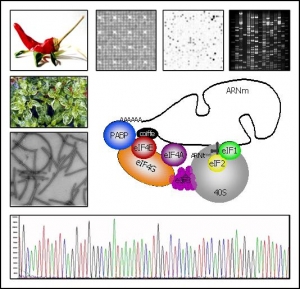
Pepper eiF4E family
Screening the pepper BAC library in order to identify all the members of the eIF4E multigenic family
Read more
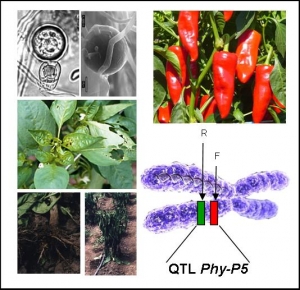
PHYTOSOL-2
Functional confirmation of candidate genes for a broad-spectrum resistance QTL against Phytophthora in Solanaceae
Read more

